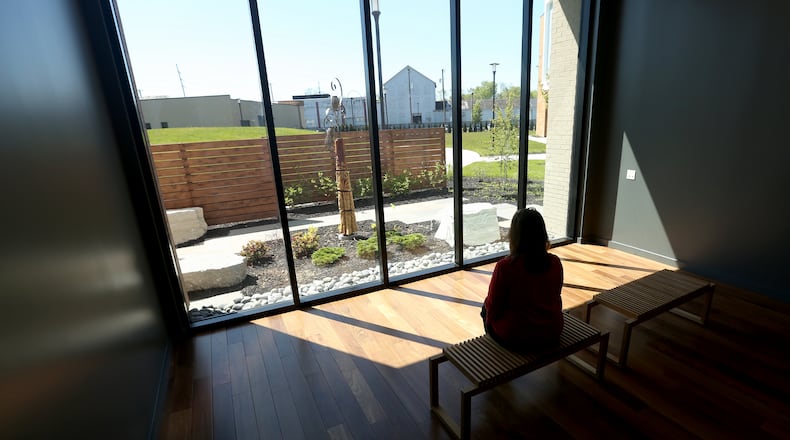“The team at OneFifteen is working diligently to prepare for our re-opening of clinical services,” said Dr. Natalie Lester, chief medical officer and interim president at OneFifteen.
OneFifteen, which has been operating since 2019, announced last year that it would be transitioning into being an independent provider. OneFifteen — named after the 115 people in the U.S. who died each day from opioid overdoses in 2017 — was launched by Verily, a Google affiliate, working with Dayton region’s two largest hospital systems, Premier Health and Kettering Health.
As a part of this transition, OneFifteen and Premier Health mutually agreed not to renew OneFifteen’s operating partnership with Samaritan Behavioral Health, a subsidiary of Premier Health.
This separation is part of the next phase of operation for OneFifteen and was the result of conversations between each of the different partners, OneFifteen said in August. OneFifteen had been anticipating that its business model would change over time.
“Based on four years of experience in the Dayton community working with Samaritan Behavioral Health and other community partners, OneFifteen decided to become an independent clinical care provider for substance use treatment services,” Lester said.
Samaritan Behavioral Health began winding down some operations at OneFifteen’s campus in September, closing them at the end of December at OneFifteen.
The SBHI Crisis Stabilization Unit was one of the services that ceased operations in December at OneFifteen’s campus. OneFifteen anticipates it will be able to offer similar services in March of this year.
“As a provider, we will continue to prioritize accessible, differentiated, and evidence-based services,” said Lester.
Outpatient services being provided by Samaritan Behavioral Health at OneFifteen’s campus also ceased operations at the end of December. OneFifteen plans to begin offering their own outpatient services in March.
Samaritan Behavioral Health recently reopened its outpatient substance treatment services at Elizabeth Place, 601 S. Edwin C. Moses Blvd. in Dayton. Other services that moved back to Elizabeth Place included non-intensive and intensive outpatient services, medication-assisted treatment, ambulatory detox services, care coordination, and peer support.
The transition was “seamless,” according to Premier Health, which also said there was no impact to staff who provide these services.
“All SBHI staff who worked in inpatient and crisis stabilization at OneFifteen were offered positions within Premier Health when those services were discontinued. Many of those staff did move into other roles at Premier Health, while others decided to accept employment offers elsewhere,” a statement from Premier Health said.
OneFifteen’s inpatient residential services also closed on Sept. 22, 2023. OneFifteen will restart those operations later this year.
“We will announce our date for the grand reopening of outpatient services in the coming weeks. Service development activities are underway now, including posting, hiring and onboarding staff and the clinical team,” Lester said.
While those clinical operations have been closed, prospective patients are being referred to other residential providers in the community.
OneFifteen’s 58 bed low-intensity residential unit has remained open and operates in partnership with Recovery Innovations International. That unit is still accepting new participants.
About the Author

